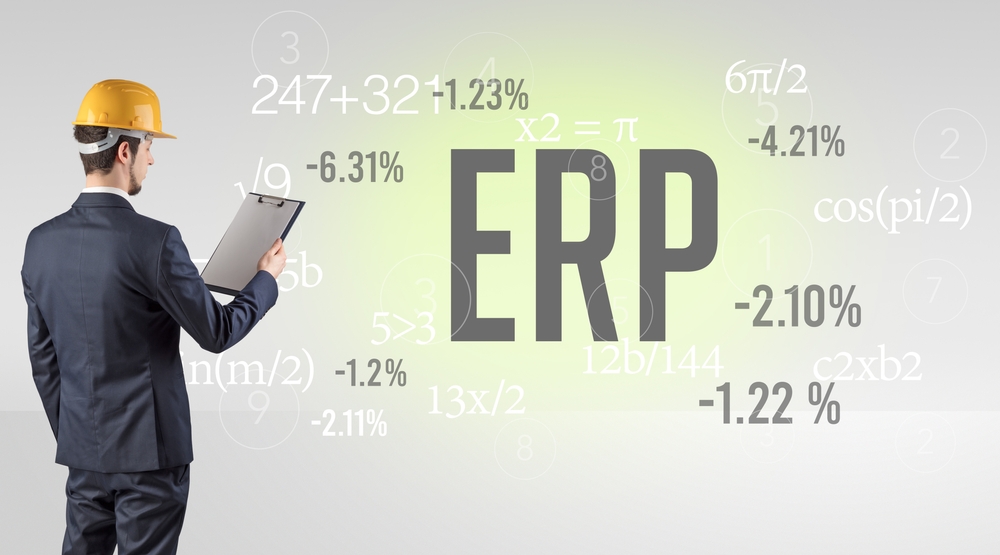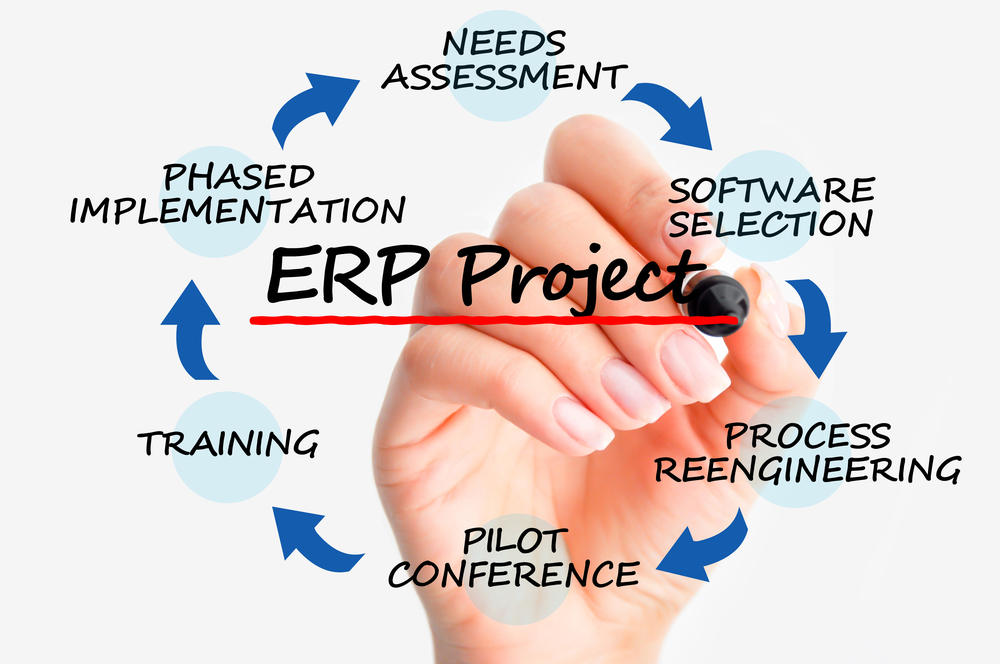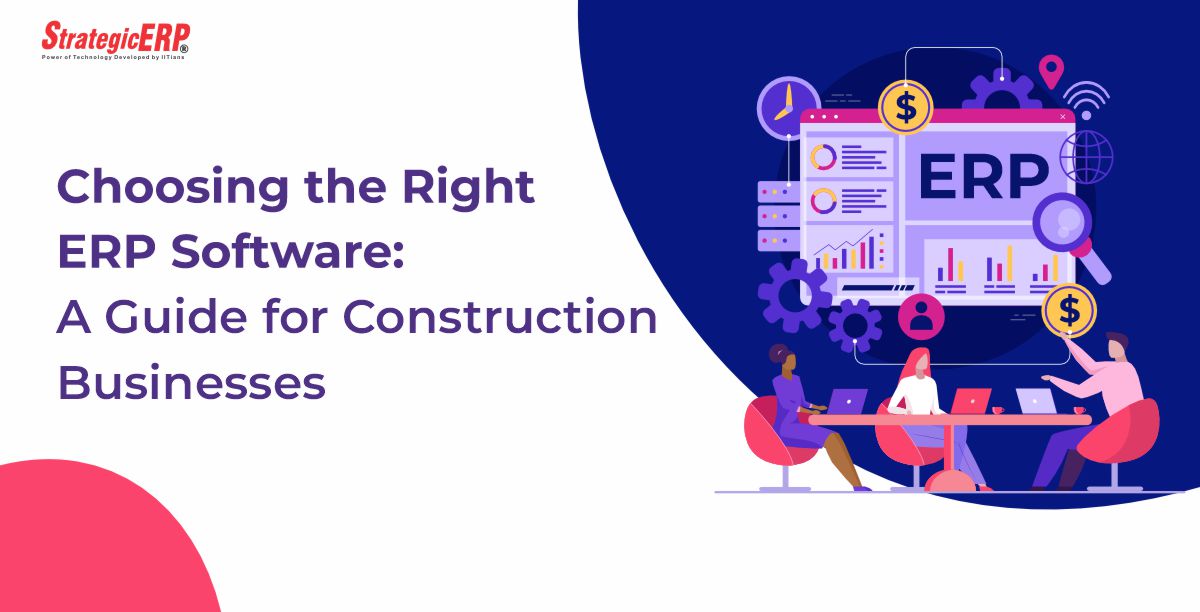Choosing the Right ERP Software: A Guide for Construction Businesses
Category : Digital Transformation
Blog posted by : Admin / 28 Jun, 2024
The global construction market is predicted to rise from $14,000 billion in 2022 to $18,000 billion in 2027 at a rate of 5.5%. Managing every aspect of your business efficiently is paramount in the competitive world. From juggling project timelines and budgets to optimising resource allocation, even the slightest misstep can impact your bottom line.
This is why you must invest in the correct Enterprise Resource Planning (ERP) for your construction business. It is a centralised management system, integrating everything from project management to supply chain and inventory control. This translates to better data visibility, improved collaboration, and smarter decision-making.
However, with a wide range of ERP options available, choosing the best ERP for construction can feel like a challenge. This comprehensive guide is here to navigate you through the entire process – from understanding key features to evaluating vendor capabilities and pinpointing the cost of implementation. Keep reading!
What is ERP Software?
ERP software is a key critical of modern business operations, serving as a comprehensive suite of tools that integrate and streamline various organizational processes. ERP systems create a unified platform for data flow and decision-making from accounting and procurement to project management and supply chain operations. By consolidating information from multiple sources, these systems eliminate redundancies and establish a reliable source of truth for an organisation’s transactional data.
While ERP software comes in many forms, industry-specific solutions offer specialised functionality to address unique challenges. Construction ERP software, for instance, goes beyond generic systems by incorporating features designed to handle the complexities of project planning, resource allocation, and financial management specific to the building industry.
Importance of ERP in Construction
Construction ERP is the perfect solution for streamlining project management with a central hub for tasks, schedules, budgets, and documents. This fosters seamless collaboration, eliminates redundant data entry, and allows project managers to make well-informed decisions with real-time data at their fingertips.
Additionally, powerful financial management tools ensure you stay on budget, with features like automated billing and comprehensive reporting for proactive cost control.
But ERP goes beyond just day-to-day operations. How? You can avoid costly delays and overbooking by efficiently allocating equipment, labor, and materials based on project needs. ERP also enhances communication and collaboration across teams and stakeholders with features like document sharing and real-time updates, ensuring everyone is updated with the latest information.
Key Features of ERP Software for Construction

While traditional ERP systems offer benefits like automation and efficiency across various industries, they often fall short in construction. This is because generic ERP systems don’t cater to the specific needs of construction projects. To address these challenges, you need a specialised construction ERP software with features such as:
-
Financial Control: Construction ERP offers powerful financial management tools. Track expenses, manage budgets, simplify invoicing, and ensure regulatory compliance – all with real-time data for informed financial decisions.
-
Resource Allocation: Modern resource planning tools help you efficiently distribute materials, equipment, and manpower based on project needs and availability. This reduces downtime, cuts costs, and maximises operational efficiency.
-
Project Management: Construction ERP centralises project tasks, schedules, budgets, and documents. This one-stop shop empowers you to manage, plan, and track projects from start to finish, fostering seamless collaboration and improved decision-making.
-
Compliance Management: Construction ERP helps you manage risk and adhere to regulations. Features like document control, versioning, and audit trails provide a clear history for improved transparency. This reduces the chances of disputes and legal issues.
Steps to Choose the Right ERP Software
Choosing a Construction Management ERP system is like picking the right blueprint for your business success. It shapes how you manage finances, streamline operations, and, ultimately, achieve your company goals. To ensure the chosen system perfectly fits your needs, here are some key factors that you should consider during your evaluation:
Identifying Business Needs
Begin by thoroughly examining your construction company’s current processes and pain points. Take the time to identify areas where efficiency can be improved, such as project management, resource allocation, or financial tracking. By understanding your specific requirements, you’ll be better equipped to choose a solution that addresses your unique challenges and supports your company’s growth.
Assessing Current Processes
Analyse your existing workflows and systems in detail. Determine which processes are working well and which need improvement or a complete overhaul. This comprehensive analysis will help you in selecting an ERP system to enhance your strengths while addressing your weaknesses. Also, pay attention to bottlenecks, redundancies, and manual tasks that could be automated. This insight will be invaluable when evaluating potential ERP solutions.
Defining Business Goals
Establish clear, measurable objectives for implementing an ERP system. Whether improving project delivery times, reducing costs, enhancing client satisfaction, or increasing overall productivity, having defined goals will allow you to choose an ERP software that aligns with your business strategy. These goals will also serve as benchmarks to measure your future ERP implementation’s success.
Identifying Key Stakeholders
Involve representatives from different departments in the decision-making process. Their input will ensure that the chosen construction industry ERP software meets the needs of all aspects of your business, from on-site operations to back-office functions. Also, include project managers, financial officers, HR personnel, and IT staff in the discussions – their diverse perspectives will help you select a system that truly serves your entire organisation.
Evaluating ERP Options
Research various ERP solutions available in the market, paying close attention to those specialising in construction and infrastructure. Then, evaluate how each option aligns with your identified needs and business goals.
You can also consider StrategicERP—best ERP software for construction—which offers a comprehensive suite designed specifically for large-scale infrastructure projects. Our system, developed by IIT Bombay alumni, incorporates cutting-edge features like AI and voice command interfaces.
Market Research
Narrow down your options to a few vendors that best meet your requirements. Include StrategicERP in your shortlist, as our specialised focus on construction and infrastructure projects makes us a strong contender for businesses in this sector. You should also look for vendors with a proven track record in your industry and those who clearly understand your specific challenges.
Shortlisting ERP Vendors
When shortlisting vendors for ERP software for construction, it’s crucial to take a systematic approach that aligns with your specific needs and goals. Start by creating a comprehensive list of potential vendors that offer solutions tailored to the construction industry. Include well-established names and innovative newcomers like StrategicERP, which offers specialised features for large-scale infrastructure projects.
Next, evaluate each vendor based on several key criteria. For example, consider their industry expertise - vendors with a strong track record in construction are more likely to understand your unique challenges.
Comparing Features and Benefits
Conduct a detailed comparison of the features offered by each shortlisted vendor. Pay attention to the software’s unique offerings, such as real-time analytics for cost optimisation and process excellence, which can provide significant value to your operations. Consider how each system handles project management, resource allocation, financial tracking, and reporting. Essentially, look for features that will give you a competitive edge in the construction industry.
Implementation Process

Consider the complexity and duration of the ERP implementation process for each system. Then, look for vendors that offer comprehensive support and training to ensure a smooth transition. Also, evaluate their implementation methodologies, timelines, and the level of customisation required. A well-planned implementation can minimise disruptions to your ongoing projects and operations.
Planning and Timeline
Evaluate both the initial investment and long-term costs associated with each ERP solution. Factor in expenses such as licensing, implementation, training, and ongoing maintenance.
Remember to take into consideration the potential return on investment (ROI) when making your decision. Look beyond the upfront costs and consider how each system can contribute to increased efficiency, reduced errors, and improved decision-making in the long run.
Data Migration
This process involves carefully transferring your existing data to the new ERP system, ensuring no valuable information is lost or corrupted. Start by identifying which data needs to be migrated, including project histories, financial records, client information, and resource allocation data. Then, undertake a thorough data cleaning process to ensure accuracy and remove any redundant or outdated information. Now, map your existing data structure to the new system’s architecture, considering how different data types will be organised and accessed in the new environment.
Testing and Go-Live
This phase involves running simulations of your typical business processes to identify any issues, gaps, or areas for improvement. Involve key users from different departments in this testing phase - their diverse perspectives will help ensure the system meets everyone’s needs and functions as expected across all areas of your construction business. Once testing is complete and any necessary adjustments are made, carefully plan your go-live strategy.
Cost Analysis
Understand all upfront expenses, including software licensing fees, which may vary based on the number of users or modules required. You might also need hardware upgrades, such as servers or enhanced network infrastructure, to support the new system. Also, implementation services, including system configuration and customisation, often form a significant portion of initial costs.
Looking beyond the initial implementation, it’s essential to consider the long-term financial commitment of an ERP system. Ongoing costs usually include annual licensing fees, which may increase as your business grows and you add more users or modules.
ROI Calculation
Lastly, evaluating your ERP implementation’s potential ROI is crucial for justifying the expense and setting realistic expectations. Start by considering tangible benefits, such as reduced operational costs through improved resource allocation, decreased project overruns, and increased productivity due to streamlined processes. To do this, you can create a detailed ROI projection that accounts for these factors over time - typically 3-5 years.
Conclusion
As companies grow, the complexities of managing a patchwork of software can quickly become a burden. An ERP system tackles this challenge head-on, integrating your entire operation and ensuring smooth sailing for your business.
If you’re still unable to decide on the best ERP software for your construction company, sign up for StrategicERP’s free demo! It is a high-performance construction ERP software designed to streamline complex business functions and optimise resources for large-scale infrastructure projects. Also, our software boasts features like real-time analytics, a user-friendly interface, and inbuilt functionalities such as machine learning and voice command interface.
Frequently Asked Questions (FAQs)
Are there any industry-specific ERP solutions for construction?
There are industry-specific ERP solutions tailored for construction, such as Procore, Viewpoint, and Buildertrend. These solutions offer features like project management, financial tracking, and resource allocation specifically designed to meet the unique needs of construction projects.
What are some best practices for successful ERP adoption in construction?
Best practices for successful ERP adoption in construction include thorough planning, involving key stakeholders in the selection process, and setting clear objectives. Additionally, providing complete training and ongoing support to users ensures that the ERP system is utilised effectively and efficiently.
How do I ensure a smooth ERP implementation in my construction business?
To ensure a smooth ERP implementation in your construction business, start with a detailed project plan outlining all implementation phases. Engage experienced consultants, focus on thorough data migration, and provide extensive training to your team to facilitate a seamless transition.
What role does data migration play in ERP implementation?
Data migration is key in ERP implementation as it involves transferring existing data from old systems to the new ERP system. Accurate and efficient data migration ensures data integrity, minimises disruption, and allows the new ERP system to function correctly from the outset.








